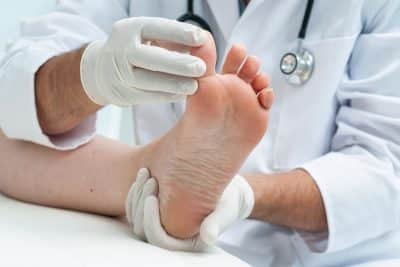Flat Feet
Flat feet, also known as fallen arches or pes planus, is a common condition where the arch of the foot collapses, causing the entire sole of the foot to make contact with the ground.
Symptoms
Flat feet can vary in severity, and not all individuals with flat feet experience symptoms. However, common signs and symptoms of flat feet include:
- Pain and Aching: Many people with flat feet experience pain or aching in the arch of the foot, the heel, or along the inside of the ankle. This discomfort may worsen with physical activity.
- Swelling: Some individuals may notice swelling along the inside of the ankle or the arch of the foot.
- Fatigue: People with this condition may tire more easily when walking or standing for extended periods due to the lack of arch support.
- Foot Movement Changes: Flat feet can lead to changes in foot movement and stability, potentially affecting gait and balance.
- Leg and Lower Back Pain: It can contribute to leg and lower back pain, as the alignment of the feet can affect the entire kinetic chain.
Types of Flat Feet
Flat feet can be categorized into two primary types:
- Flexible: This is the most common type, and the arch appears when the person is non-weight bearing (e.g., when sitting or lying down), but it flattens when standing.
- Rigid: In this type, the arch does not reappear, even when non-weight bearing. Rigid flat feet are often associated with structural abnormalities and may cause more severe symptoms.
Treatment Options for Flat Feet
Treatment for flat feet depends on the type and severity of the condition and may include the following:
- Orthotic Devices: Custom or over-the-counter orthotic inserts can provide arch support, improve alignment, and alleviate discomfort.
- Footwear Modifications: Wearing supportive shoes with good arch support can help reduce pain and fatigue. Avoiding high heels and shoes with inadequate arch support is advisable.
- Physical Therapy: Physical therapists can recommend exercises and stretches to strengthen the muscles in the feet and legs, improving overall foot function and reducing pain.
- Anti-Inflammatory Medications: Over-the-counter or prescription anti-inflammatory medications may be recommended to manage pain and reduce inflammation.
- Lifestyle Modifications: Avoiding prolonged standing or high-impact activities may help reduce symptoms, especially in those with flexible flat feet.
- Weight Management: Maintaining a healthy weight can reduce the strain on the feet and help alleviate discomfort.
When to Seek Professional Help
If you experience severe pain, your symptoms are worsening, or you suspect a structural issue, it’s essential to consult a podiatrist. A professional evaluation can help determine the type and cause of your flat feet and guide appropriate treatment.
How Sunrise Podiatry Can Help
Sunrise Podiatry, located in Broward County, Florida, is a trusted provider of expert foot and ankle care. Our experienced podiatrists are well-versed in diagnosing and treating various foot conditions, helping patients find relief and improved foot function.
Sunrise Podiatry offers personalized treatment plans to address your specific needs. Our podiatrists will assess the severity and type of your flat feet and recommend the most appropriate treatment, which may include orthotic devices, physical therapy, or lifestyle modifications.
By choosing Sunrise Podiatry, you gain access to a team of experienced professionals dedicated to helping you find relief, alleviate pain, and improve your quality of life. Our commitment to patient well-being, advanced treatment options, and cutting-edge technology sets us apart as a leading podiatry clinic.
Flat feet can be a source of discomfort and pain, but they are treatable with the right care. Sunrise Podiatry is dedicated to providing expert foot and ankle care, with a team of experienced podiatrists and a range of treatment options tailored to your specific needs. Don’t let flat feet hinder your life; contact Sunrise Podiatry to start your journey towards relief and healthier, happier feet.


